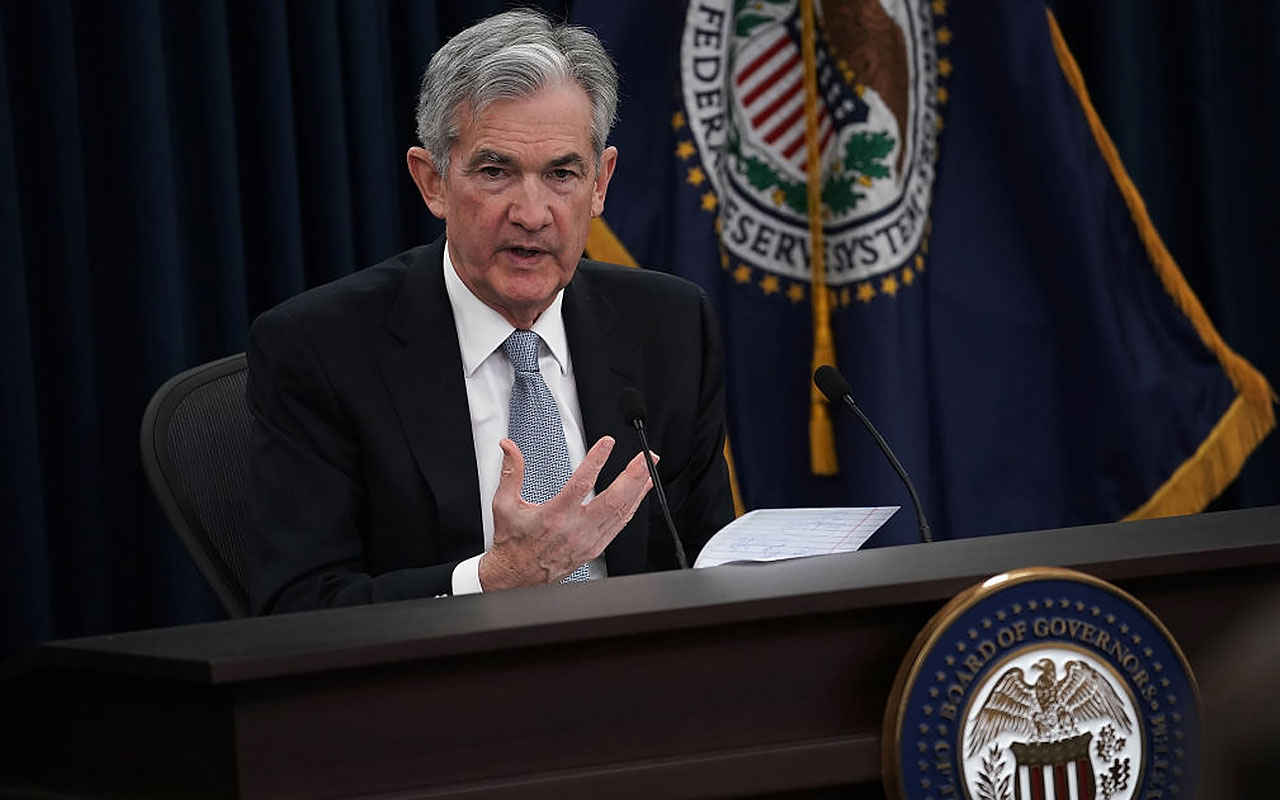“Sell in May and Go Away”: 8 Things That Matter More
Are you ready for what’s supposed to be the slowest and least productive period of the year?


Profit and prosper with the best of Kiplinger's advice on investing, taxes, retirement, personal finance and much more. Delivered daily. Enter your email in the box and click Sign Me Up.
You are now subscribed
Your newsletter sign-up was successful
Want to add more newsletters?

Delivered daily
Kiplinger Today
Profit and prosper with the best of Kiplinger's advice on investing, taxes, retirement, personal finance and much more delivered daily. Smart money moves start here.

Sent five days a week
Kiplinger A Step Ahead
Get practical help to make better financial decisions in your everyday life, from spending to savings on top deals.

Delivered daily
Kiplinger Closing Bell
Get today's biggest financial and investing headlines delivered to your inbox every day the U.S. stock market is open.

Sent twice a week
Kiplinger Adviser Intel
Financial pros across the country share best practices and fresh tactics to preserve and grow your wealth.

Delivered weekly
Kiplinger Tax Tips
Trim your federal and state tax bills with practical tax-planning and tax-cutting strategies.

Sent twice a week
Kiplinger Retirement Tips
Your twice-a-week guide to planning and enjoying a financially secure and richly rewarding retirement

Sent bimonthly.
Kiplinger Adviser Angle
Insights for advisers, wealth managers and other financial professionals.

Sent twice a week
Kiplinger Investing Weekly
Your twice-a-week roundup of promising stocks, funds, companies and industries you should consider, ones you should avoid, and why.

Sent weekly for six weeks
Kiplinger Invest for Retirement
Your step-by-step six-part series on how to invest for retirement, from devising a successful strategy to exactly which investments to choose.
Are you ready for what’s supposed to be the slowest and least productive period of the year? May kicks off a five-month stretch that is so synonymous with lackluster performance that the term “sell in May and go away” is fixed in Wall Street’s vernacular.
The theory has a little merit. On average, the months from May through September are tepid at best, and bearish at worst. But it’s not quite accurate to call the whole span a waste of time. Investors who are willing to stay in the market rather than “sell in May” more often than not find that their portfolios are slightly bigger come September – even if just barely.
More than anything, the notion that following the “sell in May and go away” practice will let you sidestep a sleepy phase is irrelevant. There are frequent exceptions to the norm. Stocks reflect what’s going on around them far more than they respond to calendar-based tendencies.
Here are eight other factors that should play a much more important role in determining how you should invest (and what you should invest in) over the middle months of 2018.

Earnings Season
We’re smack-dab in the middle of a rather healthy earnings season. As of this writing, Standard & Poor’s reports that 60% of the first quarter’s earnings reports are in hand, and so far, 78% of companies have exceeded estimates. Overall, profits are up nearly 30% year-over-year.
The tax breaks helped, to be sure, but the tax cuts put into place at the beginning of 2018, can’t get all the credit.
David Kelly, JPMorgan Asset Management’s chief global strategist, told CNBC, “This is an extraordinary earnings season,” adding, “The only negative is this is about as good as it gets. … We’ve had five years of earnings growth telescoped into 2018 here.”
The remaining 40% of companies that haven’t yet reported still may botch it for all other stocks. There’s also the not-so-small reality that earnings must continue to grow this year and next to keep richly valued stocks moving higher. Kelly is concerned that may not be possible, but S&P had modeled strong growth all the way through 2019.

Rising Inflation
A little inflation isn’t a bad thing. In fact, it’s an indication of economic strength. Rampant inflation is highly undesirable, though, as it quickly erodes the value of the dollar, and it can (and often does) ultimately lead to a recession.
It remains to be seen whether the Federal Reserve will be able to keep inflation in check right now. It’s not even clear if the Fed will even need to do so. But there’s no denying that prices are heating up again; the annualized consumer inflation rate of 2.36% is not only above the Fed’s target, but growing steadily each and every month.
There’s more. Last week, the Department of Labor reported that for the first quarter, the nation’s employment cost index grew 0.8% from Q4, and was up 2.7% year-over-year. Those were the biggest increases since Q3 2008. If that pace persists – which certainly is possible with America at full-employment levels – the added costs must be passed along to consumers.

Data Privacy
A growing long-term problem finally came to a head in April, when Facebook (FB, $173.59) CEO Mark Zuckerberg was grilled by a Senate committee for what ultimately amounts to a failure to protect its users’ data. The hearing didn’t immediately lead to new privacy standards for the internet industry, but there’s little doubt that’s where we are headed.
That’s a problem not just for Facebook, but for web-centric outfits such as Alphabet (GOOGL, $1,031.45) and Amazon.com (AMZN, $1,572.62) as well. Their success hinges on the use of highly detailed data regarding their users. Most organizations have, or can get, a vague collection of basic information about an individual. The power many of these consumer-driven web companies enjoy, however, lies in the nuanced details they have about you, including what kinds of news stories you “like” and what you search for when you’re online.
These companies may be able to know less about individuals going forward, ultimately weakening the value of their advertising platforms.
More food for thought? One aspect of the privacy conversations materializing in response to the Cambridge Analytica scandal that hasn’t yet been pushed into the spotlight is the outright sale of user information. Facebook and Google say they only use your data rather than let others have access to it. But Twitter (TWTR, $29.00) appears to do so – in a sense – calling it “data licensing” on its detailed income statement.
The very idea troubled investors in a way it hadn’t before they became ultra-sensitive to it, leaving them to wonder whether Google and Facebook also rely on selling data in a way that’s not yet fully understood.

China Backs Down on Tariffs
President Donald Trump played what appeared to be a dangerous game for the better part of the past year, threatening to impose (and actually imposing) new tariffs on goods imported into the United States – mostly imports from China. Some feared the chatter might incite an all-out trade war, which nobody really “wins.”
But quite the opposite has taken shape.
Realizing Trump wasn’t going to back down, Chinese President Xi Jinping did. He explained in early April that he will open China’s market to more (and less restrictive) foreign investment. He also will lower tariffs imposed on goods imported from the United States, including automobiles. He even vowed to respect intellectual property rights that had been violated in the past.
Nothing has been solidified yet, but if things take shape as they seem they could, it could be a game-changer for the global economy. IHS Markit’s Rajiv Biswas says, “President Xi’s speech could create a very good platform to launch U.S.-China dialogue at the WTO to find a deal on intellectual property rights that will address U.S. concerns. This would be a victory for the world trading system and an important step away from the abyss of rising global protectionism.”

Flattening Yield Curve
The yield curve is a comparison of short-term interest rates to long-term ones. In a normal, healthy environment, the further away the maturity date is, the higher the rate. When the difference between short-term rates and long-term rates narrows (or outright inverts), it’s an indication that the Fed could be on the verge of slamming the brakes on economic growth to keep inflation in check.
The current yield curve is about as flat as it has been in years.
Perhaps it’s just as false alarm. Interest rates for all bonds and Treasuries are ultimately established by the market, which changes the effective yield on debt instruments by increasing or decreasing demand for those instruments. If the collective wisdom of traders is wrong because it’s emotionally driven, in time the yield curve will fix itself and be back to normal.
If the crowd knows exactly what’s on the horizon, though, the shrinking difference between long-term and short-term interest rates may well be the omen of a recession it’s supposed to be.

Higher Interest Rates
While the flattening yield curve is a concern, it’s not the only interest-rate concern on the table right now. The Federal Reserve’s weapon against inflation – interest rates – have been rising and are expected to continue doing so for at least the rest of the year. The yield on the 10-year Treasury recently poked its head above 3% for the first time since 2014. The Fed raised its benchmark once this year, and there’s talk of two or maybe even three more quarter-point rate hikes before 2018 comes to a close.
Maybe the economy can handle higher interest rates that ultimately pump up the cost of borrowing money. Even at a full percentage point higher than where they are now, interest rates still would be well below long-term norms. Besides, higher interest rates can make banks and brokers even more profitable.
But maybe the economy is more fragile than it seems. Perhaps borrowers are more sensitive to interest rates than they appear.
That’s the rub. This is more about the pace of rising rates than the scope of them. CFRA Chief Investment Strategist Samuel Stovall recently discussed the matter with CNBC, saying, “It depends on the ascent. I would rather that it walk, not run.”

North Korea
The prospect of nuclear war along the Pacific Rim didn’t sound too far-fetched even just a few weeks ago. North Korea was testing missiles capable of carrying nuclear warheads on a regular basis, and verbal sparring among the leaders of affected nations was the norm. Fear and uncertainty were keeping investors on edge.
What a 180! North Korean leader Kim Jong-un now seems to be working on the de-nuclearization of the Korean peninsula, setting the stage for peace there that could create a wave of confidence and comfort that washes across the world.
That could be very good for stocks. JPMorgan Asset Management Japan’s global market strategist Yoshinori Shigemi told Bloomberg, “We have to look at how effective this turns out to be. But at least we’re headed toward a resolution. To choose a side, it’s a plus for global equities, looking at where we are today.”
Just be cautious. If talks unravel and nothing changes from the status quo, the disappointment could drag equities back down.

Apple iPhone Sales Slowing?
Can one company set a tone for the entire market? Usually not, but when that company is the world’s biggest and most profitable (and therefore the most watched), it wields undue influence – not just psychologically, but also in the performance of scores of funds.
Yes, that’s Apple (AAPL, $162.32). It makes a handful of different product and offers a few different services, but it lives and dies by the iPhone, which still accounts for a majority of revenues. That’s a problem right now, however. Because after more than a decade of unbridled popularity, demand for the increasingly expensive smartphone could be topping out.
A commentary from Goldman Sachs delivered late last month cautioned, “iPhone demand expectations for March and June are already weak but we believe that early CQ1 (calendar first quarter) demand indications suggest even lower actual numbers than consensus is modeling.” Several known suppliers of components found in the iPhone have warned the market that demand for their wares has been unusually weak, underscoring the idea that the high-priced devices aren’t drawing crowds the way they used to.
Goldman thinks any headwind now will be offset later thanks to higher average selling prices than seen in the past. But it’s still unusual to see Apple not completely in control of its own destiny.
Profit and prosper with the best of Kiplinger's advice on investing, taxes, retirement, personal finance and much more. Delivered daily. Enter your email in the box and click Sign Me Up.

-
 Betting on Super Bowl 2026? New IRS Tax Changes Could Cost You
Betting on Super Bowl 2026? New IRS Tax Changes Could Cost YouTaxable Income When Super Bowl LX hype fades, some fans may be surprised to learn that sports betting tax rules have shifted.
-
 How Much It Costs to Host a Super Bowl Party in 2026
How Much It Costs to Host a Super Bowl Party in 2026Hosting a Super Bowl party in 2026 could cost you. Here's a breakdown of food, drink and entertainment costs — plus ways to save.
-
 3 Reasons to Use a 5-Year CD As You Approach Retirement
3 Reasons to Use a 5-Year CD As You Approach RetirementA five-year CD can help you reach other milestones as you approach retirement.
-
 Nasdaq Drops 172 Points on MSFT AI Spend: Stock Market Today
Nasdaq Drops 172 Points on MSFT AI Spend: Stock Market TodayMicrosoft, Meta Platforms and a mid-cap energy stock have a lot to say about the state of the AI revolution today.
-
 S&P 500 Tops 7,000, Fed Pauses Rate Cuts: Stock Market Today
S&P 500 Tops 7,000, Fed Pauses Rate Cuts: Stock Market TodayInvestors, traders and speculators will probably have to wait until after Jerome Powell steps down for the next Fed rate cut.
-
 S&P 500 Hits New High Before Big Tech Earnings, Fed: Stock Market Today
S&P 500 Hits New High Before Big Tech Earnings, Fed: Stock Market TodayThe tech-heavy Nasdaq also shone in Tuesday's session, while UnitedHealth dragged on the blue-chip Dow Jones Industrial Average.
-
 Dow Rises 313 Points to Begin a Big Week: Stock Market Today
Dow Rises 313 Points to Begin a Big Week: Stock Market TodayThe S&P 500 is within 50 points of crossing 7,000 for the first time, and Papa Dow is lurking just below its own new all-time high.
-
 Nasdaq Leads Ahead of Big Tech Earnings: Stock Market Today
Nasdaq Leads Ahead of Big Tech Earnings: Stock Market TodayPresident Donald Trump is making markets move based on personal and political as well as financial and economic priorities.
-
 11 Stock Picks Beyond the Magnificent 7
11 Stock Picks Beyond the Magnificent 7With my Mag-7-Plus strategy, you can own the mega caps individually or in ETFs and add in some smaller tech stocks to benefit from AI and other innovations.
-
 Nasdaq Adds 211 Points as Greenland Tensions Ease: Stock Market Today
Nasdaq Adds 211 Points as Greenland Tensions Ease: Stock Market TodayWall Street continues to cheer easing geopolitical tensions and President Trump's assurances that there will be no new tariffs on Europe.
-
 Dow Hits a Record High After December Jobs Report: Stock Market Today
Dow Hits a Record High After December Jobs Report: Stock Market TodayThe S&P 500 also closed the week at its highest level on record, thanks to strong gains for Intel and Vistra.
